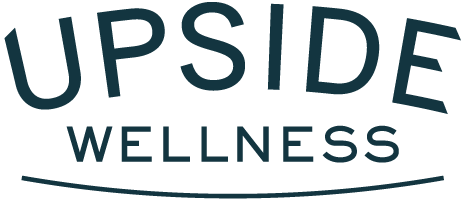I did a presentation on laughter therapy and improv the other day for a packed house of other mental health professionals and was told by the host site that it was the biggest turnout they had ever had. Just got the feedback surveys, and highlights include:
"Amazing"
"Awesome!"
"Loved it! Thank you!"
"Best presentation ever!"
"Wonderful!"
"Excellent!"
"It got everyone involved and having fun!"
"Loved the Del Close quote!"
"Very informative and educational and it brought out laughter and reduced my anxiety!"
The power of laughter. The power of improv. The power of me sweatily explaining how to properly say "Groovalicious."
Let me explain. A few days ago I did a CEU entitled Improv & Laughter in Therapy at Rock Springs, a great behavioral hospital in Georgetown just north of Austin, and apparently my CEU was a huge success. I was told it was the biggest turnout they had ever had, and the feedback was overwhelmingly positive. It was a total blast. It was mondo fun for me and apparently “very fun,” “educational,” and “awesome!” for the attendees. I’ll tell you how it all went down.
Basically a CEU or continuing education unit is an educational presentation for other mental health professionals including therapists, counselors, social workers, etc. Since coming to Austin and opening Upside Wellness, I have been getting some exciting invitations to do presentations, workshops, and to host CEU’s on my unique style. I wrote and devised this CEU based on my research and experience concerning the benefits of laughter, laughter therapy, and the therapeutic value of improv comedy. It wasn't just a boring old powerpoint (although there was a powerpoint component; Busted). This CEU was different. It was experiential. It was interactive. It was full of participation, getting up and moving around, and actually DOING improv and laughter therapy.
Needless to say it was an incredibly unique CEU that was meant to feel more like a workshop than a seminar, and apparently the title “Improv & Laughter in Therapy” really resonated with people enough to attract a great turnout at Rock Springs.
I presented the hard facts first. The benefits of laughter. How research tells us that laughter truly is good for us and that the act of laughter helps to reduce stress, anxiety, and depression. I led everyone in some laughter therapy exercises and some fun, interactive improv games like "Zip, Zap, Zop" and a “Yes And” storytelling exercise. I even did a brief demonstration of some actual improv comedy, and I'll say it was a very warm house.
The attendees were absolutely GREAT. Everyone was super into it! I had been concerned that the attendees might be hesitant about participating or engaging in silly uproarious laughter, partaking in improv games or generally getting silly. This was a room full of mental health professionals after all. We aren't known for our silliness. However, I was very pleasantly surprised at how everyone got into it immediately. Everything I asked them to do was done with enthusiasm and gusto. Needless to say we all had mondo fun, myself included, and it appears everyone found it helpful and educational too.
I think the surveys speak for themselves. People told me they loved the CEU and that they plan to apply what they learned to their own treatment approaches and to their work with clients. Mission. Accomplished.
I have already been invited back to Rock Springs to present again in the future, and I’m thrilled! I’m already planning future CEU’s that delve deeper into the nuts and bolts of the practical applications of improv in therapy, especially when conducting individual therapy sessions. Stay tuned for future developments, but it appears that people are really hungry for this stuff.
The healing power of laughter is real. The healing power of improv is real. Get into it. The rhythm is gonna get you.
PS: The Del Close quote I used was "Treat each other as if we are geniuses, poets, and artists."
Lane Ingram, M.Ed., LPC
Upside Wellness, Clinic Founder
